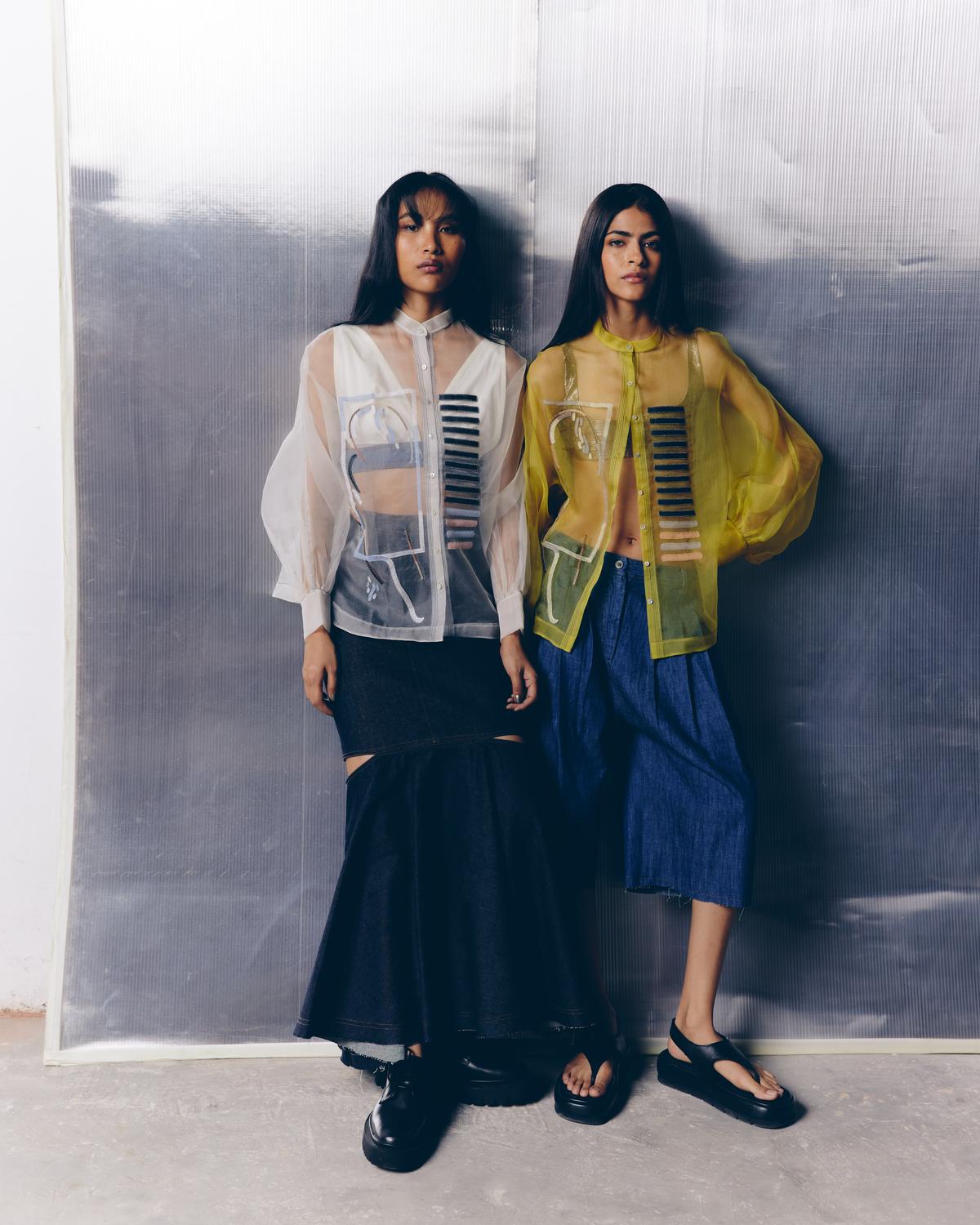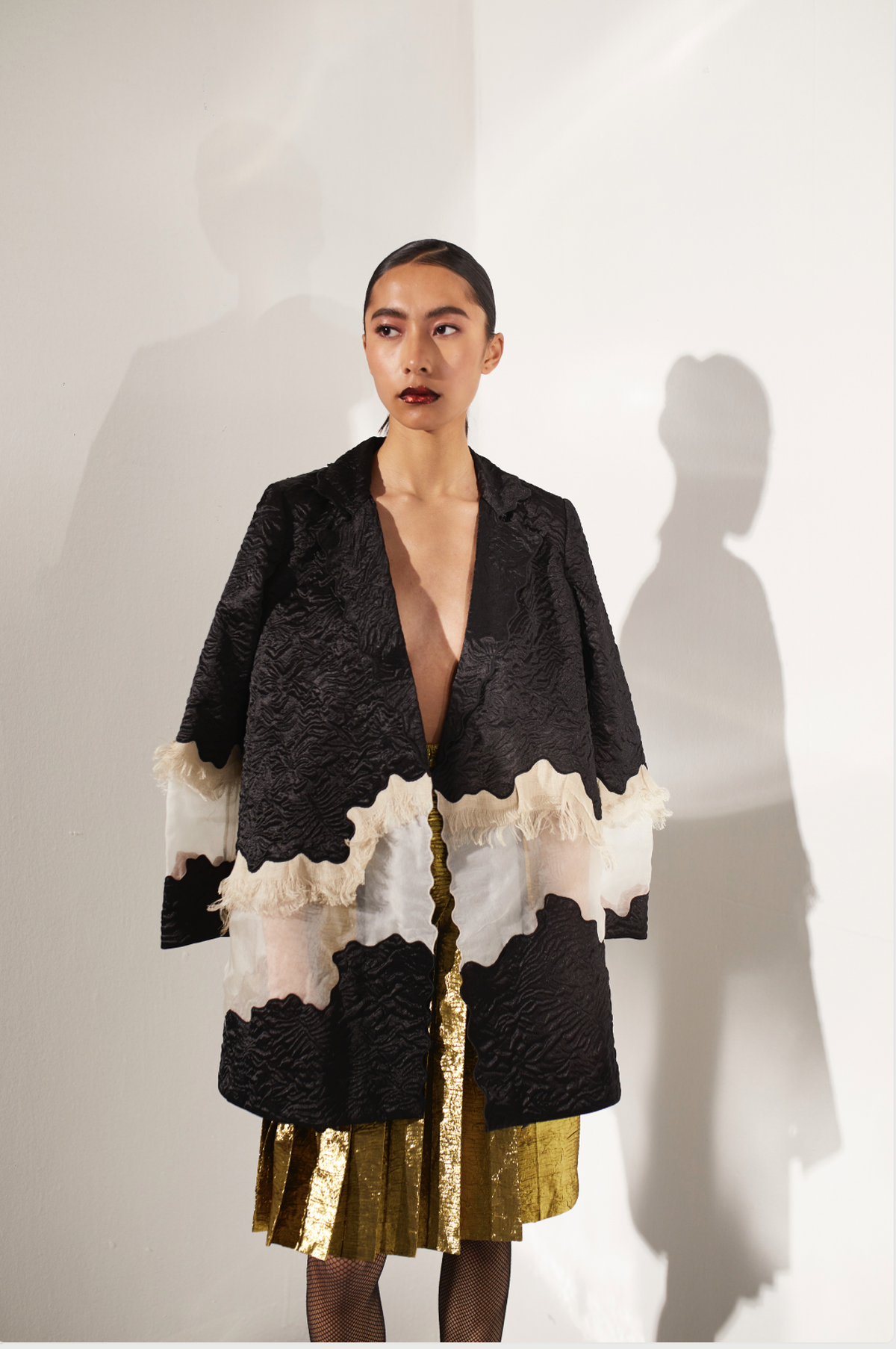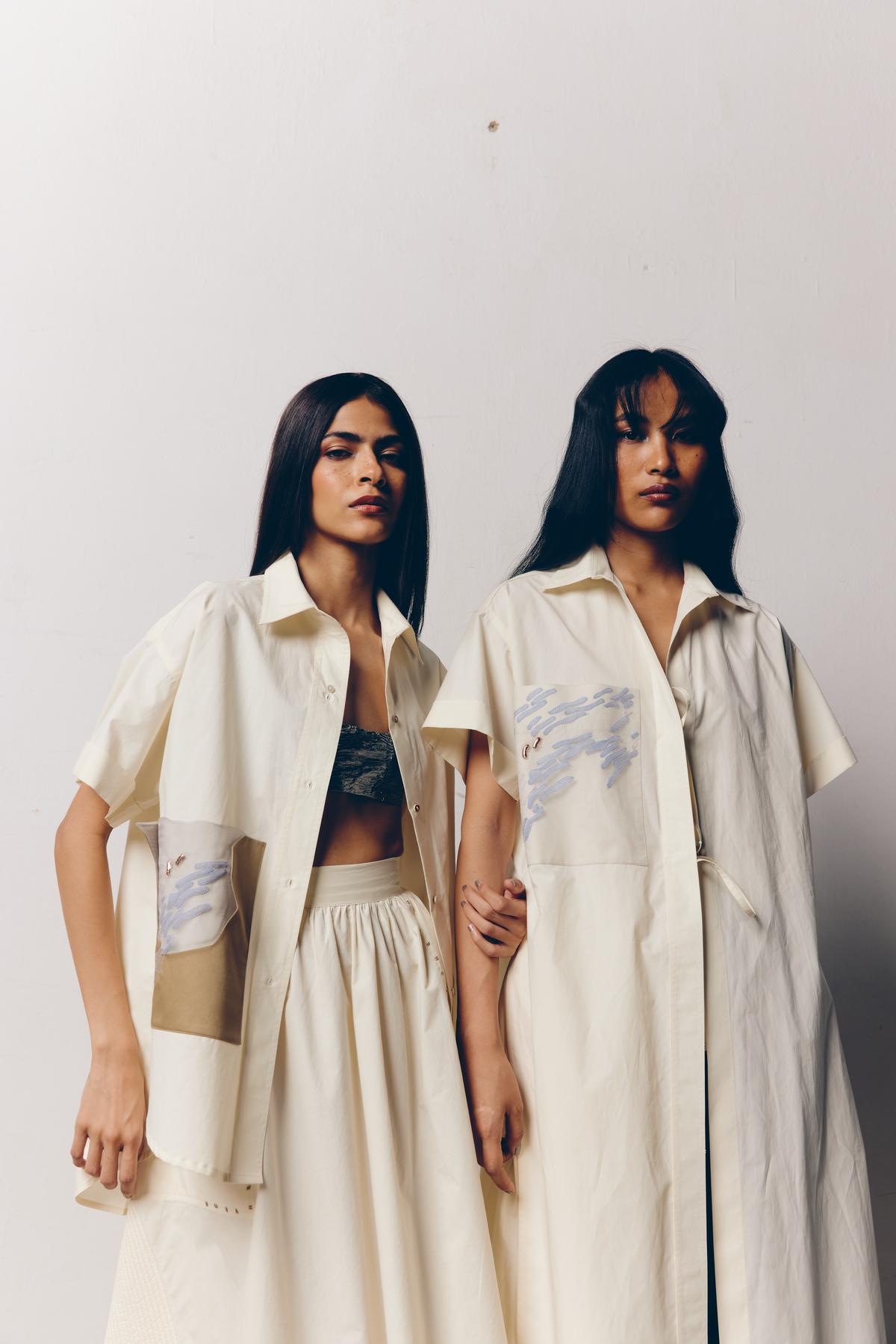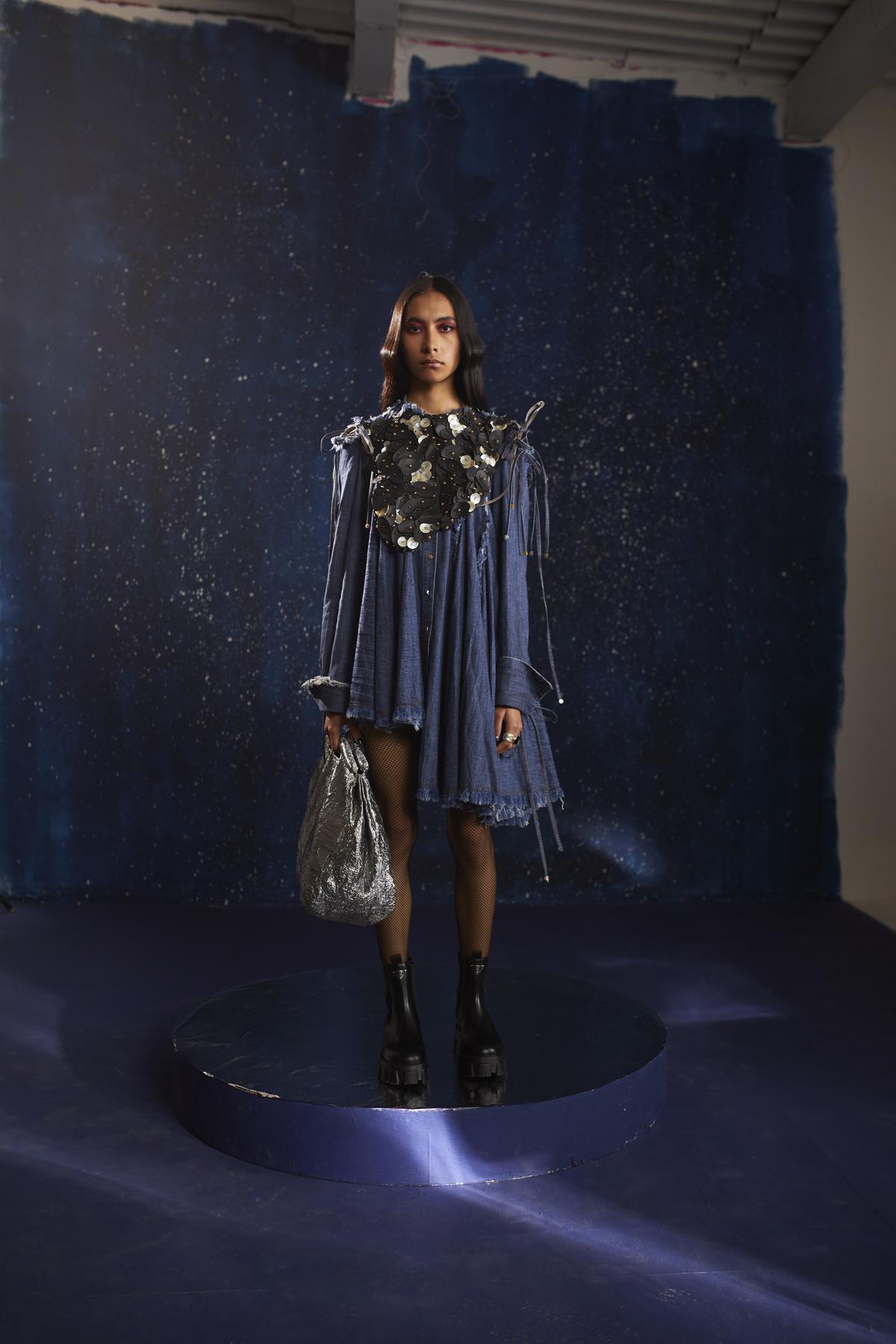
Rubber Pebbel Skirt made with repurposed discarded tyre tubes. Embellished with koin textile created at studio (left) and the beam dress Made from pashmina wool and silk satin , running along the lines is the rubber married to the fabric through zardozi embroidery
| Photo Credit: Special arrangement
In one of its recent reports, National Green Tribunal revealed that close to 2.75 lakh tyres are discarded in India every day. The tyre waste’s impact on the country’s environment is also as shocking as the data above. While more companies are trying to recycle tyres, from repurposing them as footwear to using them for building roads with Crumb Rubber Modified Bitumen, the sustainable-clothing industry is not too far behind. Graine, a Delhi-based brand, started its tryst with upcycling rubber-tyre waste in 2018, when it launched its first autumn/winter collection Run-of-the-Mill. “In Delhi and NCR, we started picking up tyres from small vendors at bastis, garages, cycle puncture shops and Kathputli Colony,” says Mannat Sethi, who co-founded the brand with Harshna Kandhari.

Maze Daze Kimono Shirts made with 100% silk organza fabric paired with Scoop Eye Skirt and Paper Bag shorts
| Photo Credit:
Special arrangement
The designers, both Elle graduates 2021, are now extending their experiments with waste tyres to their new summer edit Palate Cleanser. The capsule also marries embellished pieces — made from waste metal hardware (chains, blade units and circle stoppers) — with nylon mesh and Swarovski crystals. “The collection features an element of repurposing tyre tubes in selective looks. This time, we have extended our craft to creating bags bejewelled with metal and glass beads,” shares Harshna.
The process of upcycling rubber tyres starts with dipping them in water for three days and then bathing them in heavy kerosene to clean the rubber. They are then beaten with hammer and prepared for needles: to be stitched and embroidered. “This is followed by a flattening process, where tyres are pressed under fabric with a heavy iron. We then do embossing where heat setting stamps are used. The rubber is then ready to be married with the textile,” Harshna explains. The process of recycling and creating garments happens at the brand’s manufacturing unit, which is also in Delhi.

Quilt Jacket Dress with detachable quilted panels made with industrial fabric waste
| Photo Credit:
Special arrangement
“We marry the upcycled process with textiles which we create in-house using gota and other suitable fabrics, like Chanderi, cotton. The upcycled tyres are mounted on the textile. Palate Cleanser encapsulates all of the techniques we have used over the years and it has been created over a month and a half,” adds Mannat. She intends to make an entire ensemble using only repurposed materials, but observes that the market may take a while to accept the radical shift. “People are still adjusting to wearing dresses made from rubber and metal waste to cocktails. In our collection, you will find the traditional bakhiya stitch of Chikankari sitting on a classic cut shirt or the gota of Anaarkali borders on a pleated skirt or a bomber jacket. We work with several fabrics, including gota textile, silk organza and hand-done ruched fabric,” she says.

Cube shirt and shirt dress featuring chankari and mukaish handwork on organza
| Photo Credit:
Special arrangement
With a total of six collections under its belt, Graine won the generation next title at Lakme Fashion Week in 2020 when it showcased its runway collection in Mumbai and the Helsinki fashion award for sustainability in 2019 at The Helsinki Fashion Week. It specialises in giving a contemporary spin to otherwise traditional techniques like the bakhiya stitch of Chikankari and badla work. “Having worked with the Mijwan Welfare Society of Lucknow in my initial days post graduation, we did some extensive projects under the leadership of actor Shabana Azmi. The design and exploration of Chikankari and questions around its relevance in today’s design language initiated from our communications and interactions with artisans,” Mannat adds.

Mountain fold asymmetric dress , distressed seams
Married to a rubber band embellished neck piece made from re purposed tyres with beads.
| Photo Credit:
Special arrangement
The brand’s team comprises 35 skilled artisans, including Chikankari experts. With a store in The Dhan Mill, Delhi, Graine’s collections are available in eight cities, including Mumbai, Hyderabad, Ahmedabad, Kolkata and Chandigarh (to name a few) through multi-head stockists like Ogaan, Ensemble, Pernia, Aza and private showcases.

Rubber sculpt sari, with rubber-embellished blouse and pre-stitched sari in a classic drape of 100% silk satin organza
| Photo Credit:
Special arrangement
Palate Cleanser includes shirts, dresses, tunics and trousers, skirts, jackets (with removable panels), corsets and saris starting at ₹11,000 on graineworld.com.





